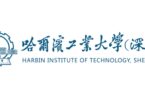
OpenAI, the hyped artificial intelligence research laboratory, has recently applied for trademarking the term “GPT” with the United States Patent and Trademark Office (USPTO). The move comes as the organization aims to protect its widely recognized AI technology from misuse, imitation, and unauthorized exploitation.
OpenAI’s flagship product, the GPT series, has seen significant development in recent years.
Established in 2015 by tech industry leaders like Elon Musk, Sam Altman, and Greg Brockman, OpenAI is known for its ground-breaking research in artificial general intelligence (AGI). The latest iteration, GPT-4, is hailed as one of the most advanced language models, enabling a broad range of applications from content generation to natural language understanding.
The trademark application filed by OpenAI pertains to the use of the term “GPT” in association with “computer software for natural language processing, machine learning, artificial intelligence, and data analysis; software development tools for the aforementioned services; software for creating, training, and deploying machine learning models.”
This indicates that OpenAI seeks to secure exclusive rights to use the “GPT” name in connection with its AI-related products and services.
The Rejected Appeal
Regrettably, OpenAI’s appeal was rejected last week. According to the agency, the organization’s lawyers failed to submit the necessary fees and did not provide sufficient documentation to support the request for special action.
As a result of its position in the queue, OpenAI may have to wait up to five more months for a resolution, says Jefferson Scher, an intellectual property expert at Carr & Ferrell and head of the firm’s trademark division. However, Scher notes that OpenAI has several reasons to be optimistic about obtaining the patent.
Concerns have been raised regarding using “T” for “Transformer” in GPT, which could potentially cause obstructions in the trademark application process.
Google researchers introduced the Transformer neural network architecture in 2017, which has since become widely adopted in the AI community. Given its broader use, critics may argue that “Transformer” should not be exclusively associated with OpenAI’s GPT technology.
There are questions about whether GPT could be a brand even with a highly descriptive origin. Some argue that it is possible, citing IBM (International Business Machines) as an example of a brand with a descriptive origin. Although such precedents don’t guarantee that OpenAI will ultimately secure the GPT trademark, they could potentially prove advantageous for their case.
The Delayed Action
Why didn’t OpenAI act sooner to safeguard the “GPT” moniker? Experts ponder that the company might have been unexpectedly swept off its feet by the magnitude of its own triumphs. In an intriguing twist, OpenAI is seemingly striving to seize the initiative in China, where ChatGPT has yet to debut and could face hurdles. The company has reportedly endeavored to secure a related trademark there.
It’s also being opined that OpenAI has reached a pivotal moment where GPT has transcended its status as a mere trio of random letters.
It’s a fledgling startup that seeks its counsel on the safety of adopting the acronym. Experts like Scher have also shed light on a fascinating nuance of trademark law that may ultimately prove advantageous for OpenAI. While fame isn’t a prerequisite for trademark acquisition, once a company attains notoriety, it enjoys a protective shield extending beyond its primary realm.
For instance, the illustrious trademark of Rolex makes its use on any other product unthinkable. If OpenAI can demonstrate that “GPT” has attained a similar degree of fame, the company will likely wield power to curtail the acronym’s use more extensively.





